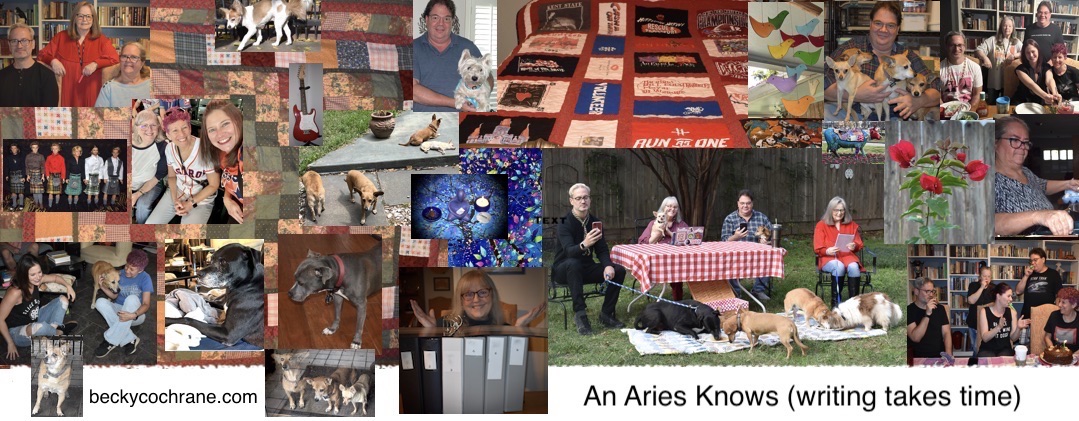I wonder if there’s a single published author of popular fiction who isn’t shuddering over the situation with Kaavya Viswanathan and the charges of plagiarism against her.
As a writer, I’m constantly observing, absorbing, processing, and reshaping everything I see and hear. I couldn’t possibly count the number of times a friend has told me something, and my immediate reaction is, “May I use that?” If it’s an incident that happened to the person, I feel relatively safe, because by the time it goes through all my filters and adjustments and the other machinery of my imagination, it’ll probably be very different from its origin. But if it’s a great line or quip, how do I know where that person got it? Maybe it was in somebody else’s book or movie or play or TV show.
One of the eerie things about writing with four other people is how often we think the same thoughts and articulate our visions the same ways. If it can happen among the four of us, who’s to say it can’t happen between multitudes of us?
That situation is even more pronounced with Tim and me, because we seem to share a brain when we write. We both admit that there are passages in our novels whose writers we can’t identify. Were they conversations or ideas we once shared that turned into text? Are we subconsciously mimicking each other’s styles and word choices because we know each other so well and have to write in a single voice?
Beyond that, we are all just bombarded with so much from pop culture. There’s no way anyone can remember every sight gag, every brilliant line, every idea that s/he is exposed to. I’m sure there’s a lot of borrowing that’s entirely unintentional. And certainly there’s a lot of imitating that is meant to be a tribute to the original…or to replicate its success. A blockbuster movie, bestselling book, or highly rated TV show will spawn dozens more just like it.
And some things are just accidents. I think I’ve told the hamster story on here before. Among the companion animals of my life were a dog named Hamlet and a hamster named Houdi. When I began writing A COVENTRY CHRISTMAS, I decided to turn those two into one animal: Hamlet the hamster. In a conversation with my friend Tandy after my novel was half-written, she said, “A hamster? Like Janet Evanovich?” I’d never read a Janet Evanovich book in my life, but I immediately went out and got her first book about Stephanie Plum, the bounty hunter who has a hamster named Rex.
I wasn’t sure what to do. Should I turn Hamlet into another rodent-like thing? Then I remembered that Harley Jane Kozak has a ferret in her mysteries. For all I knew, the shelves of women’s fiction were teeming with more gerbils, moles, squirrels, and lemmings, than a rainforest–or a Captain and Tenille song. Finally, Tom said, “Just because someone once wrote Lassie doesn’t mean no one else can ever use a dog in a book.” So instead of offing my fictitious hamster, I found a way to pay conscious and deliberate tribute to Evanovich and Rex within my story.
I didn’t steal Rex and turn him into Hamlet. The same way that, even though I JOKE about this, the writers of Queer as Folk didn’t steal the TJB character Ken Bruckner and turn him into Ben Bruckner. There is such a thing as coincidence.
While part of me scowls at the idea of plagiarism, another part of me quakes at the thought of being accused of it. Mostly, I can’t help noticing (and I’m not the first to comment on this!) that every time the media runs the Kaavya Viswanathan story, mention is made of the huge advance she was given to write her books and the fact that she got a movie deal (which is where the real $$$$ are). If she’d been barely compensated the way most writers are, would people be less inclined to study every sentence in her novel and compare it to the writers she’s accused of plagiarizing?
I don’t know. But I do know this. When you get wrapped up discussing these concepts on your Live Journal, you forget that cauldron of homemade soup you started. And then you end up with:

Does Janet Evanovich have days like this?
